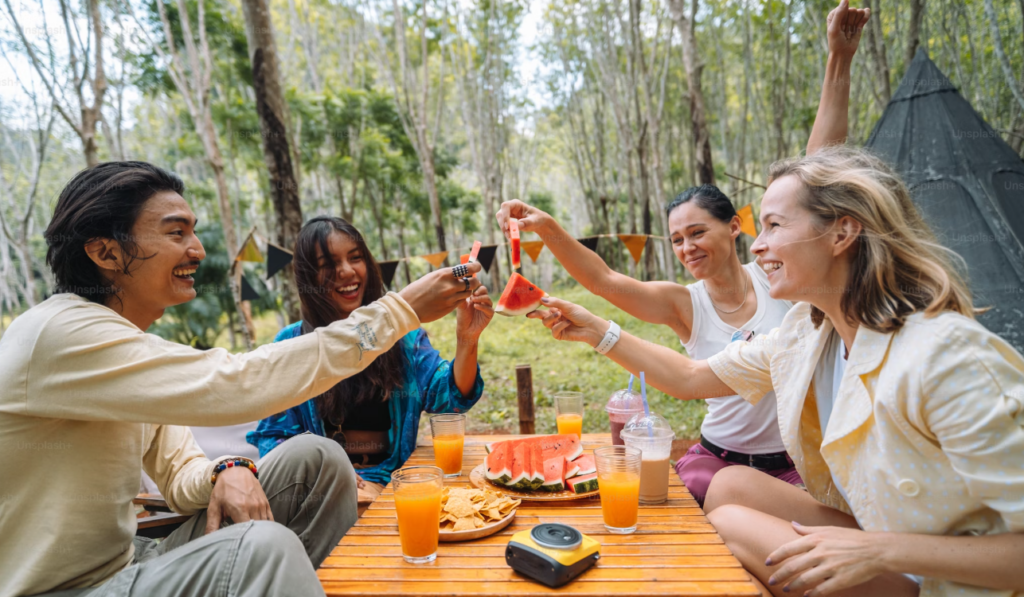Embarking on a camping journey is an exhilarating way to reconnect with nature, but success hinges on thorough preparation. This guide is designed to help both novice and seasoned adventurers assemble everything needed for a seamless outdoor experience, covering gear, seasonal considerations, and expert tips for every scenario.
Table of Contents
Camping Gear Essentials
Equipping yourself with the right gear is the foundation of any successful camping trip. Here’s a comprehensive list of must-have items for every wilderness excursion:
- Shelter Solutions: Choose a reliable tent with waterproof features and a footprint or tarp for ground protection. Consider a hammock for lightweight alternatives in suitable environments.
- Sleep Systems: Invest in a quality sleeping bag rated for the season and a sleeping pad for insulation and comfort. Inflatable pillows add a touch of home.
- Camp Furniture: Portable chairs and a foldable table enhance comfort during meals and relaxation. Look for compact, durable designs.
- Cooking Equipment: A portable stove, fuel, cookware, utensils, and a cooler are essential for meal preparation. Don’t forget a water filter or purification tablets.
- Lighting: Headlamps, lanterns, and extra batteries ensure visibility after dark. Solar-powered options are eco-friendly alternatives.
- Clothing: Pack moisture-wicking, layered clothing suitable for the climate. Include rain gear, hats, and gloves as needed.
- Safety & First Aid: A well-stocked first aid kit, multi-tool, map, compass, and emergency whistle are vital for unexpected situations.
- Navigation Tools: GPS devices or smartphones with offline maps help prevent getting lost. Always have a backup.
- Personal Items: Toiletries, sunscreen, insect repellent, and a quick-dry towel keep you fresh and protected.
- Entertainment: Books, games, or musical instruments can enhance the camping experience, especially for groups and families.
Seasonal Camping Guide
Each season presents unique challenges and opportunities for campers. Tailor your preparations to the time of year for maximum enjoyment and safety.
Spring
Spring camping is marked by unpredictable weather and emerging wildlife. Waterproof gear, layered clothing, and allergy medication are must-haves. Be prepared for rain and mud, and enjoy the vibrant flora and fauna.
Summer
Summer brings heat, insects, and crowds. Prioritize shade, hydration, and insect protection. Lightweight, breathable clothing and a well-ventilated tent are essential. Early morning and late evening activities are most comfortable.
Autumn
Autumn offers cool temperatures and stunning scenery. Warm layers, a cozy sleeping bag, and reliable lighting are key. Prepare for temperature drops at night and enjoy the tranquility of off-season camping.
Winter
Winter camping requires specialized gear for extreme cold. Insulated sleeping systems, thermal clothing, and a four-season tent are critical. Always check weather forecasts and be ready for snow and ice.
Expert Camping Tips
Elevate your camping experience with these practical tips from seasoned adventurers:
- Practice Setup: Test your tent and equipment at home to avoid frustration at the campsite.
- Meal Planning: Pre-cook and pre-portion meals to save time and reduce waste. Use resealable containers for easy storage.
- Organized Packing: Use clear, labeled bins to keep gear organized and accessible. Pack a separate “essentials” bag for quick access to frequently used items.
- Leave No Trace: Respect nature by packing out all trash and minimizing your impact on the environment.
- Stay Informed: Research your destination, check weather forecasts, and be aware of local wildlife and regulations.
- Backup Power: Bring portable chargers or solar panels to keep devices powered, especially for navigation and emergencies.
- Group Coordination: Assign roles and responsibilities to group members for efficient camp setup and management.
Safety & Comfort Checklist
Ensure a safe and comfortable trip with this comprehensive checklist:
- First aid kit with personal medications
- Emergency shelter (tarp or space blanket)
- Fire-starting tools and waterproof matches
- Extra food and water
- Navigation tools (map, compass, GPS)
- Communication device (phone, satellite messenger)
- Weather-appropriate clothing and footwear
- Insect repellent and sunscreen
- Personal hygiene items
- Multi-tool or knife
- Lighting (headlamp, lantern, backup batteries)
Weather-Proofing Strategies
Prepare for any weather with these proven strategies:
- Check Forecasts: Monitor weather updates before and during your trip.
- Waterproof Gear: Use rain covers for backpacks, waterproof bags for electronics, and a waterproof tent.
- Wind Protection: Secure your tent with extra guy lines and choose a sheltered campsite.
- Heat Management: Stay hydrated, seek shade, and wear breathable clothing in hot weather.
- Cold Weather Prep: Layer clothing, use insulated sleeping gear, and bring hand warmers for extreme cold.
Family & Group Camping Advice
Camping with family or a group requires extra planning for comfort and enjoyment:
- Activities for All Ages: Plan games, hikes, and crafts to keep everyone engaged.
- Comfort Items: Bring favorite snacks, toys, and comfort items for children.
- Safety Briefing: Review safety rules and emergency procedures with all participants.
- Shared Responsibilities: Assign tasks such as cooking, cleaning, and setting up tents to foster teamwork.
- Group Gear: Share large items like tents, stoves, and coolers to reduce individual loads.
Responsible Outdoor Ethics
Protect the wilderness for future generations by following these principles:
- Leave No Trace: Pack out all trash, including food scraps and biodegradable items.
- Respect Wildlife: Observe animals from a distance and store food securely.
- Minimize Campfire Impact: Use established fire rings or a portable stove. Never leave a fire unattended.
- Stay on Trails: Avoid trampling vegetation and creating new paths.
- Noise Control: Keep noise levels low to respect other campers and wildlife.

